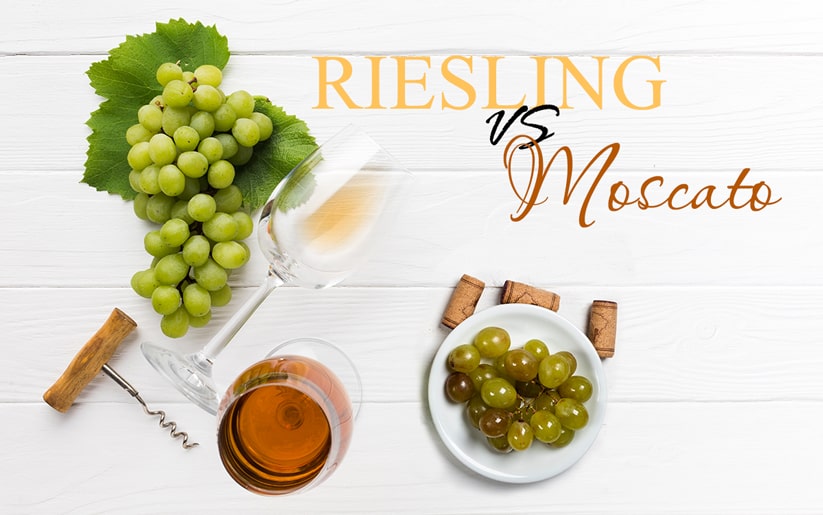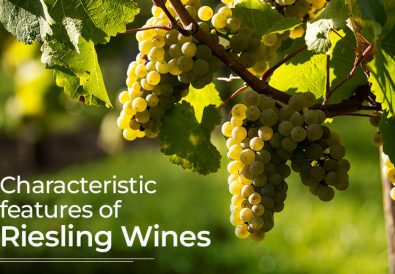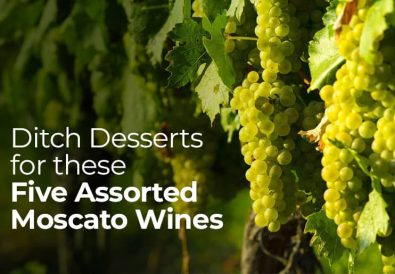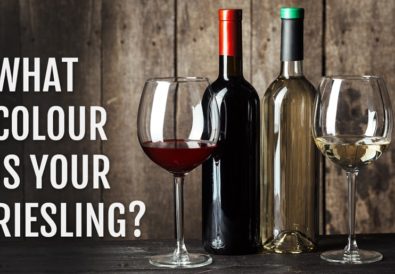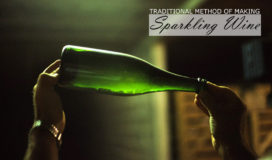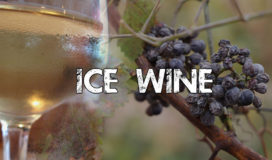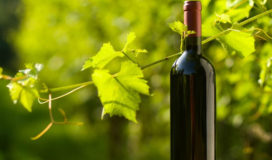Originated in Germany, Riesling has earned a reputation of being a sweet wine but there is more to this classic variety. On the other hand, Moscato is made from Muscat grapes and is often perceived as a dessert wine, produced in various styles. There is more to both these wines than sweetness and we’re going to help you understand what makes these beauties unique and so lovable.
Origin
As aforementioned, Riesling hails from Germany and Moscato was born in Piedmont, Italy. Over the years, these grape varieties have crossed borders and are grown from America to Australia, winning the hearts of many people.
Styles
Although thought to be a sweet wine, Riesling can also be produced as a dry, sparkling and semi-sweet wine. You’ll find dry Riesling in its parent country, Germany and the easier way to identify is finding the word “Trocken” written on the label. It is also produced in Alsace region (France), Eden and Clare Valley of Australia. Based on the region of production, Moscato comes in many styles. These styles are Still Moscato, Pink Moscato, Red Moscato, Sparkling (Asti Spumante) and semi-Sparkling (Moscato d’Asti) Moscato. Moscato d’Asti is one of the most popular styles of Moscato Wine and is called Frizzante in Italian.
Characteristics
Riesling offers a wide array of flavours that involves peach, apricot, pear, pineapple and lime. You’ll find lemon and pineapple notes in young Riesling while petrol, diesel and lanolin flavours in aged Riesling. Unlike reds, white wines are known to be consumed when young but Riesling has an excellent aging potential due to high acidity and can be relished after decades, given it’s stored in optimal conditions. Interestingly, it has the ability to showcase its terroir characteristics, depending upon its origin (cool climate or warm climate). A sip of this wine goes well with spicy dishes made from chicken, pork or duck and seafood such as shrimp or crab.
Moscato wines are sweeter than Rieslings and showcase peach, honey, citrus and tropical fruit characters. A fruit-driven palate exhibits pear, apple, orange and lime flavours with medium acidity. It’s perfect for people who prefer sweet wines and is a great pick for wine beginners. Enjoy these elegant wines with spicy dishes just like Riesling wines and goes exceptionally with desserts, antipasto plates or charcuterie too. It is best consumed when chilled and can also be enjoyed as an apéritif!

